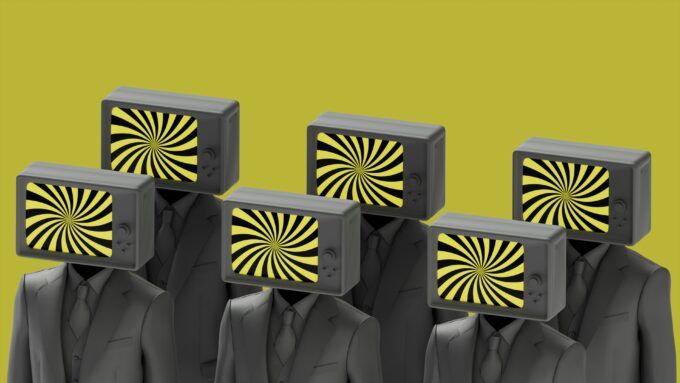
Millennial
Published on http://bad.eserver.org/
I have bedimm’d/
The noontide sun, call’d forth the mutinous winds,/
And ‘twixt the green sea and the azured vault/
Set roaring war. . . graves at my command/
Have waked their sleepers, oped, and let ‘em forth/
By my so potent art.
Shakespeare, The Tempest
“[T]he central idea of the Enlightenment: that we get to know for ourselves who we are, by seeking evidence, using reason, and coming to thoughtful consensus on truth.”
Alice Dreger, Galileo’s Middle Finger,2015
“Remember that your thoughts are the primary cause of everything.”
Rhonda Byrne, The Secret
Magic was troublesome to both what Anne Fremantle called “The Age of Belief” and to the birth of science and the Enlightenment, though it was entangled in both. Magic’s close attention to Nature in order to discern a connectedness invested in the animate and the inanimate, in birds and bushes, rocks and streams, earth and stars, prefigured science’s own turn from medieval scholasticism to rigorous empirical and rational methods. Thus, magic abused Church dogma with its notion of a pantheistic power that could be tapped into and give humans control of all things. Shakespeare’s Prospero has this power until he abjures it. Those who believed in magic assumed that the world could be bent at human command, a heresy that violated the Catholic belief that the world was created as a Celestial Entity wished it to be.
Scientists, like magicians, studied the natural world “by seeking evidence, using reason, and coming to thoughtful consensus on truth. This sought an understanding of what was previously a celestial province, and then to adapt it, make us of it, and profit from it as humans saw fit. The Enlightenment did not buddy up with magic but instead condemned it as, in the words of Bertrand Russell, “superstitious rot and nonsense” that it was reason’s mission to obliterate. There was to be no détente relationship with magic as had been sought between reason and faith via Aquinas.
Magic ruled in what the enlightened saw as a “Dark Age” in which all forms of irrationality filled the world, from the magical evocations of words, symbols, rituals and a myriad number of “algorithms” connecting disparate things to the configuration of faces and gestures, constellations and Nature’s rhythms. The world was replete with bafflements, deep down secrets, futile and adept mastery, prodigious study of pattern and Chance. Church dogma brought it all to heel within its own circumscriptions and prescriptions, a “Common Core” rule book that outlawed the presumptions of personal domination of the world that magic promised. Science too cleansed magic of its irrationalities in regard to a magical “Ch’i” which wove through all, human and not human, and it did so through the universally accepted universal rod of the scientific method.
Our new millennial age magic is a different sort of magic, not a renaissance of magic as it existed historically as a thorn in the side of both religion and science but a magic, nonetheless, in that it has, so to speak, old time magical properties. The attributes or traits of millennial magic do not require an abracadabra for access.
We see first a determination that what is fact is what is personally valuable or of personal interest. Attendant with this is a suspicion of and distaste for all authoritative judgment. More prevalent than distaste is disinterest, especially in the possible existence of any commonly accepted rules of judgment, these viewed as challenges to the authority of personal opinion. Dismissal and disinterest are reactions to the past, because not only is the past analog but also because it has no personal dimension and therefore offers no interactivity, no chance for the personal to override what history has already implanted.
Although technology is itself held as magical and is the medium for self-transformation, its potential as a public forum of truth and reality remains though in a constant battle with a desire to reduce it to the dimensions of personal will and individual uniqueness. What persists is a magical sense that truth and reality are unique to every individual who undertakes a personal journey, both offline and online, to forge that uniqueness. Magical thinking empowers the self to have power over all, to believe that “your thoughts are the primary cause of everything.” Such personal empowerment is achieved through the maximization of personal choices and the freedom to make such choices.
We can observe this millennial magic operating in a variety of domains.
Science today is an authority much challenged, its methods under suspicion in that they seem adaptable to cultural and political priorities and to capitalist needs. Once revered as universally applied and acknowledged, they now seem relative to various dispositions of time and place. We do science, Thomas Kuhn has told us, within paradigms that are more fractal than connected and continuous. We observe what we are disposed to observe Paul Feyerabend asserts, that theories do not emerge from facts but the opposite is true.
 What may proceed objectively and disinterestedly may originate in cultural biases, assumptions, and brute capitalistic power, or what a later age may see as totally irrational, phlogiston, for example, or Wittgenstein’s story of the scientific pursuit of how mice are born out of old clothes in dark closets. The authority of science seems like that of Louis XVI before Bastille, weakened, corrupted, always under indictment.
What may proceed objectively and disinterestedly may originate in cultural biases, assumptions, and brute capitalistic power, or what a later age may see as totally irrational, phlogiston, for example, or Wittgenstein’s story of the scientific pursuit of how mice are born out of old clothes in dark closets. The authority of science seems like that of Louis XVI before Bastille, weakened, corrupted, always under indictment.
Climate change, for instance, is not a “Common Core” issue, an issue upon which we all join in agreement but an issue waiting for personal response, ranging from not an issue at all to a Doomsday issue. The same dispersal of a universal response to a personal one is observable in regard to GMO’s, vaccinations, and evolution.
The social sciences have lost even greater authority than the natural sciences, perhaps because of a `60s association with liberal agendas which themselves now seem quaint in an increasingly conservative America. Education is a battleground of opinions regarding not only what students should be learning, whether tax funded charter schools are better than public schools, and whether a Common Core and the testing to maintain it are good or bad. Home schooling seems now more aligned to personal and family values as opposed to governmental imposition on personal choice. “Public” education, like all things public, offends the magical sense of personal power. And while no one accepts an authoritative voice that speaks for all in regard to economic issues such as the deficit, jobs, entitlement programs, tax reform, wealth redistribution, robotics, deflation, gentrification, wages, and much more, there seems to be a common acceptance of all parties that “Market Rule” can be tweaked but not overhauled. Magic, science and faith seem to combine universally in our allegiance to “Market Rule” and the technology that greases its wheels of profit.
Politics, of course, is the domain in which the millennial magic zeitgeist really comes into play. President Obama’s Affordable Care Act, which has so far about 20 million enrolled, is an enraging red flag across party lines. Any attempt by “Big Government” to put aside a personally acquired sense of reality and truth is attached immediately to “socialist” domination. The idea that there is such a thing as “society,” which Margaret Thatcher assured us there is not, a society of others which has some claim on us, is comparable to forcing a Renaissance magician such as Giordano Bruno to bend to the will of Church authority. The popular attachment of a Liberal view with government as an answer to all problems sets that ideology against not only the millennial magical mindset but also against the American grain of individual autonomy and personal freedom.
Built into the Liberal view that has, especially since Clinton’s “Third Way,” leaned into Neoliberal positions, is willingness to compromise. As compromise involves an acknowledgement of the validity of the views of others, it pushes millennial magic toward accepting an authority over and above the personal that has legitimate credentials. That act of self deferral in the face of the reality and truth not one’s own but the “other’s” is less and less observable in our millennial magic climate. The Neoliberal position in the U.S., however, stays close to the bone of millennial magic logic in its view of compromise as a bad thing,as an effort to supplant personal choice with the demands of others. Compromise is to be placed alongside the illegitimate authority of “Big Government” and the personhood behind it, in this case Barack Obama. He is caught driving against millennial magic traffic by personifying the Liberal view as well as “Big Government.” The fact that he is caught driving while black is both a “back in the day,” analog issue as we now see ourselves as “post-racist.”

We are only able to see ourselves thusly because our heads are now deeply within the mist of magic. Within that mist, we each can personally decide to announce ourselves as “post-” whatever has no personal interest to us. Racists choose to be “post-racist” as young women now see themselves “post-feminist,” joining the men who are so eager to make the same claim. In the magical mist, we are “post-politics,” “post-Nature,” “post-egalitarianism,” “post-welfare,” “post-postal,” “post” getting any kind of a return on a simple savings account, and soon to be, apparently, “post-driving,” and for 47% of the population, according to Tyler Cowen’s Average is Over, soon to be “post-job.”
When you reside within the millennial magic mindset a great deal that was the backbone of what philosopher John Searle called a “Western Tradition of Rationality and Realism” under attack, at that late 20th century moment, by Jacques Derrida’s deconstruction, is erased. Politics is no longer the art of compromise but a villainous enterprise in a public guise and acceptable only when kept within the boundaries of personal choice. The idea that society forms government in order to preserve, as in the U.S., a democratic order of things and that rationality is the fluid or medium that allows us to communicate and achieve ends beneficial to that democratic society is challenged by the millennial magic mindset. The idea that the fallout from a Wild West form of capitalism has undermined democracy or that a social democracy or a democratic socialism would best serve the many rather than merely a few cannot arise within our magic mindset. Solidarity working for the public good has no place in the millennial magic mindset.
Ironically, this mood of dealing with the world through a magical personal empowerment rebels angrily against everything but what most seriously encroaches upon that personal empowerment.
Market Rule has perfected a form of branding that structures the surround within which millennial magic takes place. The societal and political turmoil that results when we live in a magical sense of truth and reality is yet reached by brands which compete, unhindered by societal and political consensus which would limit both the range and the power of branding’s seductions. The battle to win minds in our magic world is a branding battle, one in which ownership is secured while the illusions of magic, and they are many, are not disturbed. Ideas of what a democracy is, what freedom is, what reason and truth may be, what reality we are in all now exist in a marketplace that capitalism knows well.
Most disastrously, those who are on the wrong side of the wages/dividends divide live within the many distractions of technology that nourish the growth of a millennial magic mindset. They stand fast at the elixir of their own individually concocted empowerment, the allurement of dominating all obstacles, while it seems clear both Market Rule and technology are taking us toward what John Lanchester in a review of Erik Brynjolfsson and Andrew McAfee’s The Second Machine Age and Tyler Cowen’s Average is Over refers to as a “hyper-capitalist dystopia.” (“The Robots Are Coming,” London Review of Books, 5 March 2015).
Yet another irony resides in the fact that there seems to be impeccable reasoning behind the millennial magic mindset, almost an algorithm for the future that cannot be denied or opposed. Lanchester quotes an interview with Larry Page, founder and CEO of Google: “[I]n a capitalist system . . . the elimination of inefficiency through technology has to be pursued to its logical conclusion.” And so, magical thinking finally finds a welcome that both science and faith had denied it. This millennial magic has found its place in a Western Tradition of Rationality and Realism truly transformed, as base metal into gold, to nurture and endorse the illusions of magic.













